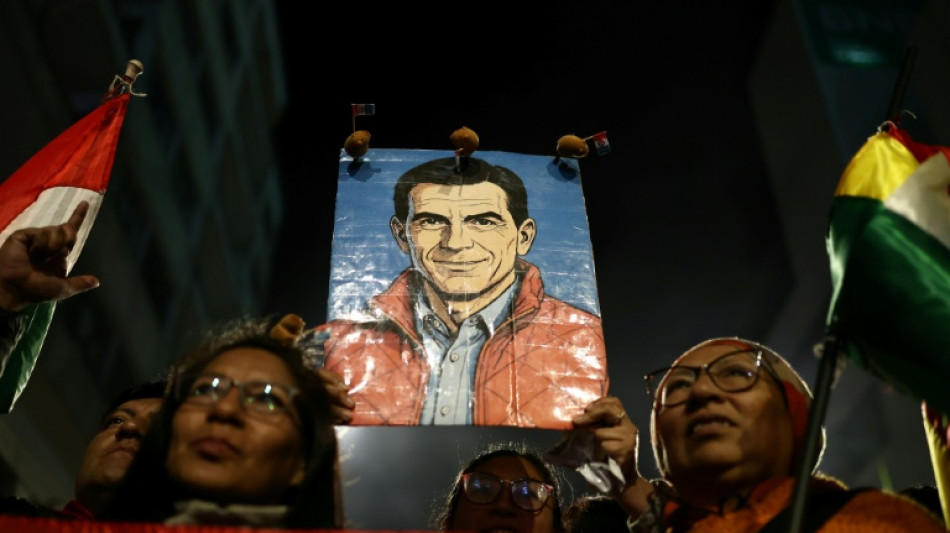
-
 'Amazing' feeling for Rees-Zammit on Wales return after NFL adventure
'Amazing' feeling for Rees-Zammit on Wales return after NFL adventure
-
'Cruel' police raids help, not hinder, Rio's criminal gangs: expert
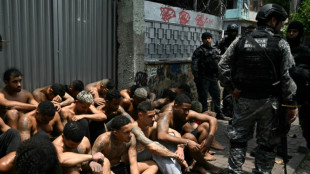
-
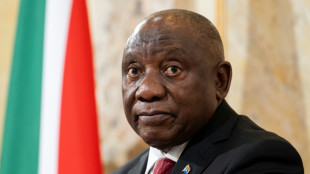 S. African president eyes better US tariff deal 'soon'
S. African president eyes better US tariff deal 'soon'
-
Sinner cruises in Paris Masters opener, Zverev keeps title defence alive

-
 Winter Olympics - 100 days to go to 'unforgettable Games'
Winter Olympics - 100 days to go to 'unforgettable Games'
-
Kiwi Plumtree to step down as Sharks head coach
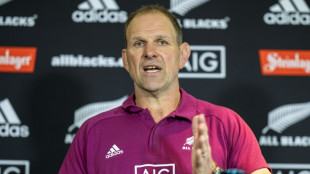
-
 France to charge Louvre heist suspects with theft and conspiracy
France to charge Louvre heist suspects with theft and conspiracy
-
US media mogul John Malone to step down as head of business empire
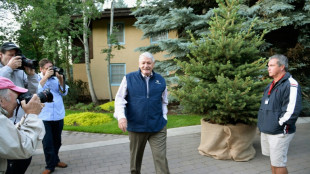
-
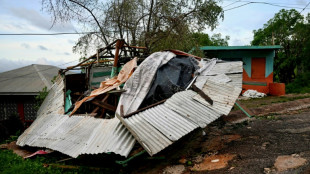 'Never been this bad': Jamaica surveys ruins in hurricane's wake
'Never been this bad': Jamaica surveys ruins in hurricane's wake
-
France adopts consent-based rape law
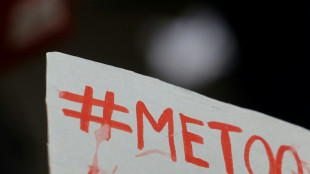
-
 Zverev survives scare to kickstart Paris Masters title defence
Zverev survives scare to kickstart Paris Masters title defence
-
Rabat to host 2026 African World Cup play-offs

-
 Wolvaardt-inspired South Africa crush England to reach Women's World Cup final
Wolvaardt-inspired South Africa crush England to reach Women's World Cup final
-
US says not withdrawing from Europe after troops cut
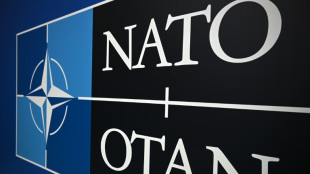
-
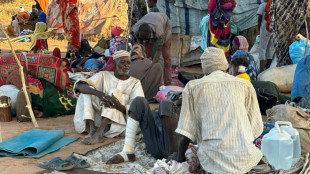 WHO urges Sudan ceasefire after alleged massacres in El-Fasher
WHO urges Sudan ceasefire after alleged massacres in El-Fasher
-
Under-fire UK govt deports migrant sex offender with £500
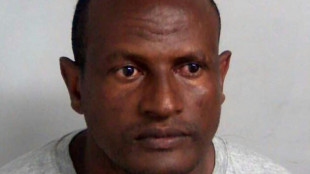
-
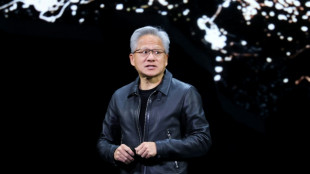 AI chip giant Nvidia becomes world's first $5 trillion company
AI chip giant Nvidia becomes world's first $5 trillion company
-
Arsenal depth fuels Saka's belief in Premier League title charge

-
 Startup Character.AI to ban direct chat for minors after teen suicide
Startup Character.AI to ban direct chat for minors after teen suicide
-
132 killed in massive Rio police crackdown on gang: public defender
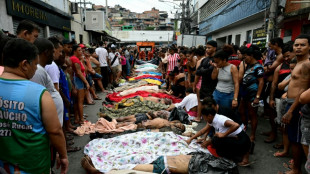
-
 Pedri joins growing Barcelona sickbay
Pedri joins growing Barcelona sickbay
-
Zambia and former Chelsea manager Grant part ways

-
 Russia sends teen who performed anti-war songs back to jail
Russia sends teen who performed anti-war songs back to jail
-
Caribbean reels from hurricane as homes, streets destroyed
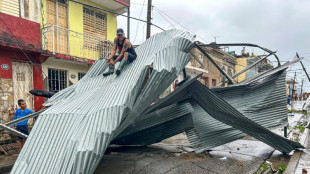
-
 Boeing reports $5.4-bn loss on large hit from 777X aircraft delays
Boeing reports $5.4-bn loss on large hit from 777X aircraft delays
-
Real Madrid's Vinicius says sorry for Clasico substitution huff

-
 Dutch vote in snap election seen as test for Europe's far-right
Dutch vote in snap election seen as test for Europe's far-right
-
Jihadist fuel blockade makes daily life a struggle for Bamako residents
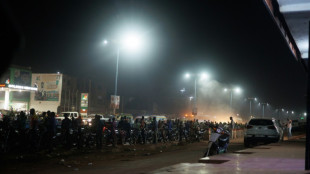
-
 De Bruyne goes under the knife for hamstring injury
De Bruyne goes under the knife for hamstring injury
-
Wolvaardt's 169 fires South Africa to 319-7 in World Cup semis

-
 EU seeks 'urgent solutions' with China over chipmaker Nexperia
EU seeks 'urgent solutions' with China over chipmaker Nexperia
-
Paris prosecutor promises update in Louvre heist probe

-
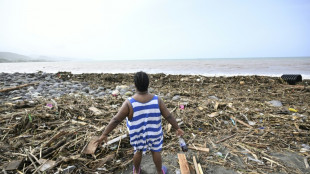 Funds for climate adaptation 'lifeline' far off track: UN
Funds for climate adaptation 'lifeline' far off track: UN
-
Record Vietnam rains kill seven and flood 100,000 homes
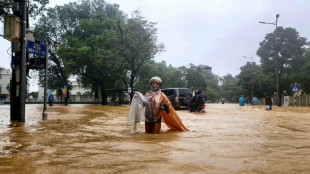
-
 Markets extend record run as trade dominates
Markets extend record run as trade dominates
-
Sudan govt accuses RSF of attacking mosques in El-Fasher takeover
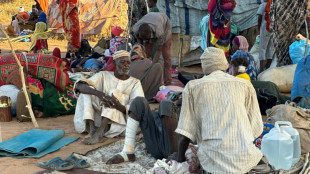
-
 Rain washes out 1st Australia-India T20 match
Rain washes out 1st Australia-India T20 match
-
Spain's Santander bank posts record profit

-
 FIA taken to court to block Ben Sulayem's uncontested candidacy
FIA taken to court to block Ben Sulayem's uncontested candidacy
-
Chemicals firm BASF urges EU to cut red tape as profit dips
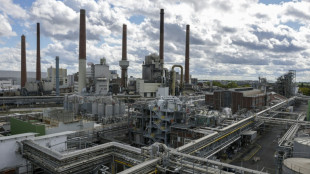
-
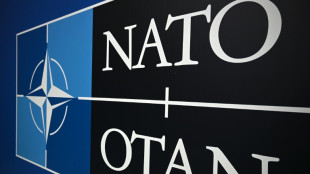 Romania says US will cut some troops in Europe
Romania says US will cut some troops in Europe
-
Israel hits dozens of targets as Gaza sees deadliest night since truce

-
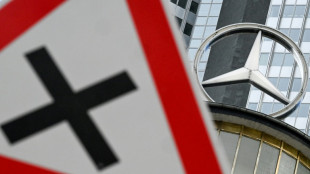 Mercedes-Benz reassures on Nexperia chips as profit plunges
Mercedes-Benz reassures on Nexperia chips as profit plunges
-
France tries Bulgarians over defacing memorial in Russia-linked case

-
 BBC says journalist questioned and blocked from leaving Vietnam
BBC says journalist questioned and blocked from leaving Vietnam
-
UK drugmaker GSK lifts 2025 guidance despite US tariffs

-
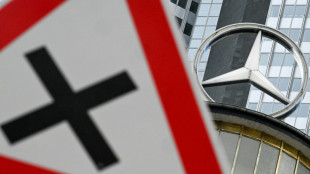 Mercedes-Benz profit plunges on China slump and US tariffs
Mercedes-Benz profit plunges on China slump and US tariffs
-
South Korea gifts Trump replica of ancient golden crown
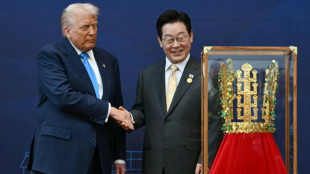
-
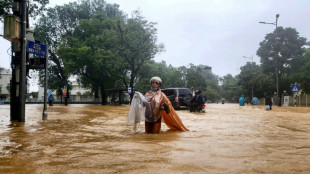 Record Vietnam rains kill four and flood 100,000 homes
Record Vietnam rains kill four and flood 100,000 homes
-
Norway's energy giant Equinor falls into loss


Bolivia's new president faces worst economic crisis in decades
Bolivians elected Rodrigo Paz as president on Sunday, selecting the center-right senator and economist to address the country's worst economic crisis in 40 years.
Paz, 58, campaigned on slashing public spending, especially on fuel subsidies, and vowed a "capitalism for all" approach to economic reform in a marked shift from the preceding two decades of socialist government.
The president-elect, who will assume office on November 8, has promised that his governance style will be one of "consensus," as he hopes to gain public trust in a divided society.
- Economy -
Bolivia is in the grips of an economic crisis, with year-on-year inflation at 23 percent and a chronic shortage of fuel.
One of Paz's main challenges at the start of his tenure will be to find a way out of the fuel crisis and overcome a severe shortage of dollars -- the result of large government subsidies and a decrease in gas exports -- while curbing an uptick in the cost of living.
"Stabilizing the economy will require very firm measures," economist Napoleon Pacheco, a professor at La Paz's San Andres university, told AFP.
But analyst Daniela Osorio of the German Institute for Global and Area Studies warned that such measures "could lead to a social uprising."
- Mistrust -
Maria Teresa Zegada, a sociologist at San Simon university in La Paz, said there was "growing public dissatisfaction with politics."
A breakdown of the results of Sunday's run-off illustrates the divisions in the country, with the more conservative and richer east largely supporting right-wing candidate Jorge Quiroga, while the more impoverished west and its large Indigenous population backed Paz.
Osorio said these trends point to a revival of traditional "divisions between the east and the west, as well as between urban and rural areas."
Maria Choquetapi, a woman from the Aymara Indigenous group, told AFP from her town of Laja west of the capital: "I would like the new government to roll up their sleeves and really get to work, not like their predecessors."
- Parliament -
Paz's party is the biggest in parliament. But with no outright majority, the new president will have to "find agreements" to rule effectively, said Zegada.
The four right-wing parties in Bolivia's parliament will hold 119 of 130 seats in the Chamber of Deputies and all 36 in the Senate.
That means Paz will have to work with some of his political rivals despite painful "wounds" from the run-off campaign, according to Osorio.
- Morales -
Evo Morales, who served as president from 2006 to 2019 and was barred from running again this year, remains popular, especially among Indigenous Bolivians.
He cast a long shadow over the campaign, and in the first round, got nearly one in five voters to spoil their ballot over his exclusion from the election.
But internal divisions in his Movement Towards Socialism party have seen Morales's influence weaken.
The former president is also the target of an arrest warrant for human trafficking over an alleged sexual relationship with a minor -- an accusation he denies.
Analyst Osorio said that even a weaker Morales "remains a destabilizing factor."
Zegada, the sociologist, said that his supporters "have already warned that if the next government does not live up to its promises, they will mobilize to overthrow it."
C.AbuSway--SF-PST
